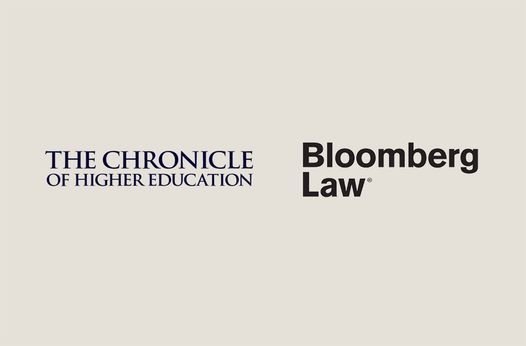Two-Year Statute of Limitations Not Limited to Legal Malpractice Claims by Clients
Lawyers for the Profession® Alert
Lawyers for the Profession® Alert | 4 min read
Sep 18, 2013
Brief Summary
The Illinois First District Appellate Court held that Illinois' two-year statute of limitations in 735 ILCS 5/13-214.3(b) applies to legal malpractice claims but is not restricted to those claims, and applies to actions arising out of provision of legal services.
Complete Summary
Plaintiff filed an amended complaint against various defendants alleging, inter alia, claims of breach of fiduciary duty against two individual defendants and claims of aiding and abetting a breach of fiduciary duty against defendant law firm, a first limited liability company (LLC), and a second LLC. Plaintiff asserted that the first individual defendant (Manager) owned half the membership interests in plaintiff, was the manager of plaintiff, and dominated and controlled plaintiff's business affairs. Plaintiff also asserted that the second individual defendant (Vice-President) was a vice president of plaintiff, and that the Manager and Vice-President owed plaintiff a fiduciary duty.
Plaintiff alleged that the Manager and Vice-President breached their fiduciary duties by diverting an option to acquire a parking garage from plaintiff to the second LLC and that the law firm aided and abetted the Manager and Vice-President in breaching their fiduciary duties by assisting them in doing so. Plaintiff asserted that the law firm assisted the Manager and Vice-President by advising and counseling them regarding ways to divert the option to acquire the parking garage to the second LLC and negotiating, drafting, reviewing and preparing the documents that accomplished that goal.
The law firm moved to dismiss, arguing that plaintiff's claim was time-barred by the two-year statute of limitations provided in 735 ILCS 5/13–214.3(b) for actions "against an attorney arising out of an act or omission in the performance of professional services." Plaintiff responded that the two-year statute did not apply because plaintiff's claim did not arise from the law firm's performance of legal services for plaintiff. The trial court granted the law firm's motion to dismiss, with prejudice, finding that the two-year statute of limitations applied to plaintiff's claim.
On appeal, the appellate court noted that a claim based on tort, contract or otherwise "against an attorney arising out of an act or omission in the performance of professional services" must be commenced within two years from the time the party bringing the action knew or reasonably should have known of the injury for which damages are being sought. 735 ILCS 5/13–214.3(b) (2010). Plaintiff argued that the two-year statute only applies to legal malpractice claims brought by a client against its attorney for actions taken in the performance of professional services for the client, and that the statute did not apply here because plaintiff's claim did not arise from actions taken by the law firm in the performance of any services for plaintiff.
In dismissing plaintiff's claim, the trial court found that the statute applied because plaintiff's allegations arose from acts performed by the law firm in the course of rendering legal services to the Manager. The parties did not dispute that plaintiff did not bring its claim against the law firm within two years of learning of the injury at issue and that if the two-year statute of limitations applied to plaintiff's claim, then the claim was properly dismissed as untimely.
The two-year statute of limitations in Section 13–214.3(b) provides that it applies to claims "against an attorney arising out of an act or omission in the performance of professional services." The court noted there is no language in the statute restricting its application to legal malpractice claims or claims brought by an attorney's client, and the plain language of the statute directs that the two-year limitation applies to all claims against an attorney arising out of acts or omissions in the performance of professional services, and not just legal malpractice claims or claims brought against an attorney by a client. The court stated that had the legislature intended to restrict the applicability of the statute to malpractice claims, it could have explicitly done so in the text of the statute as it did when it prohibited the recovery of punitive damages in legal malpractice cases (735 ILCS 5/2–1115 (West 2010)), but chose not to do so here.
The appellate court agreed with the reasoning in Polsky v. BDO Seidman, 293 Ill. App. 3d 414, 424 (1997), in which the appellate court held that the similarly worded two-year statute of limitations for a claim arising from an accountant's "act or omission in the performance of professional services" (735 ILCS 5/13–214.2(a) (1996)) was not limited to malpractice actions because the plain language of that statute contained no such limitation. The court ultimately held that while the two-year statute of limitations in Section 13–214.3(b) undoubtedly applies to legal malpractice claims, its application is not restricted to those claims by the plain language of the statute.
Significance of Opinion
This case is significant because the appellate court held that the plain language of the statute (735 ILCS 5/13-214.3) directs that the two-year limitation applies to all claims against an attorney arising out of acts or omissions in the performance of professional services, and not just legal malpractice claims or claims brought against an attorney by a client.
For more information, please contact Terrence P. McAvoy.
This alert has been prepared by Hinshaw & Culbertson LLP to provide information on recent legal developments of interest to our readers. It is not intended to provide legal advice for a specific situation or to create an attorney-client relationship.
Featured Insights

Employment Law Observer
Dec 8, 2025
12 Days of California Labor and Employment: 2025 Year in Review

Press Release
Dec 4, 2025
Hinshaw Recognized by the Leadership Council for Legal Diversity as a 2025 Top Performer

Press Release
Nov 25, 2025
Hinshaw Legal Team Secures Summary Judgment in Gas Station Injury Case

Press Release
Nov 18, 2025
Hinshaw Releases the Third Edition of Duty to Defend: A Fifty-State Survey

In The News
Nov 13, 2025
A Profile on Neil Rollnick: After 57 Years in Practice, He Has No Plans to Retire

Press Release
Oct 22, 2025
Hinshaw & Culbertson LLP Launches New Website and Refreshed Brand







